“Song of the South” remains a title synonymous with controversy within the vast Disney catalog, a film that continues to spark debate decades after its initial release in 1946. Directed by Harve Foster for the live-action segments and Wilfred Jackson for the animation, this Uncle Remus adaptation is conspicuously absent from Disney+, even as the streaming service becomes the home for a wealth of Disney’s classic films. Despite ongoing discussions about problematic content and historical context in media, and unlike some titles that carry content disclaimers, Disney has firmly stated that “Song of the South” will not be available on their platform, a stance reiterated by Disney CEO Bob Iger as early as 2020. This decision predates and was further solidified by the increased scrutiny on racial depictions in entertainment that accompanied the Black Lives Matter movement’s impact on entertainment later that year.
Set in the post-Civil War Reconstruction era South, “Song of the South” is ironically best known for inspiring the beloved Disney theme park attraction, Splash Mountain. This connection is particularly striking given the film’s unavailability; “Song of the South” last saw theatrical re-release in 1986, a common practice for Disney at the time, before being completely withdrawn from circulation. The Splash Mountain ride at Walt Disney World in Florida officially closed in January 2023, followed by the Disneyland version in California in May of the same year. Both are being transformed into Tiana’s Bayou Adventure, based on the 2009 film “The Princess and the Frog,” Disney’s first animated feature with a Black princess. Tiana’s Bayou Adventure is already open at Walt Disney World and is set to open at Disneyland later this summer.
The film’s Oscar-winning song, “Zip-a-Dee-Doo-Dah,” once a ubiquitous and cheerful Disney anthem, has also been removed from all parades and park festivities since 2023, including the Festival of Fantasy Parade. While many remember this song fondly from childhood, its origins within “Song of the South” bring with them complex and uncomfortable racial undertones. Uncle Remus, voiced by James Baskett in the film, is a character rooted in African American folklore from the 1800s, popularized through collections published by Joel Chandler Harris, a white journalist from Georgia. Harris’s interpretation of Deep South African American dialect and the tales themselves have faced critical re-evaluation over time. Despite Uncle Remus’s influence on authors such as Beatrix Potter, the stories and their source material have largely been removed from mainstream American literature due to these problematic depictions.
James Baskett’s performance as Uncle Remus was recognized with an Honorary Oscar in 1948, tragically the same year he passed away due to health issues exacerbated during the film’s production.
Film historian Karina Longworth, through her podcast “You Must Remember This,” delved into the complicated history of “Song of the South” in a 2019 episode. Longworth highlighted the minstrelsy elements present in the film and its deeply troubling portrayal of plantation life for African Americans in post-Civil War Georgia.
Despite the growing critical reassessment, “Song of the South” remained a commercially viable property for Disney for many years. Even with the closure of Splash Mountain and the film’s continued unavailability, petitions have emerged accusing Disney of succumbing to culture war pressures. However, these appeals have not changed Disney’s stance. The company is moving forward with its park transformations amidst broader changes, including resolving a significant legal dispute with Florida Governor Ron DeSantis in March 2024, which centered on Disney’s self-governing status in the state.
Here are 14 key facts to understand the ongoing controversy and legacy of “Song of the South,” a film unlikely to resurface on streaming platforms or within Disney parks in the United States, although Splash Mountain continues to operate at Tokyo Disneyland in Japan.
1. Splash Mountain’s Transformation: A New Chapter Inspired by ‘The Princess and the Frog’
[Insert: Image of Splash Mountain exterior at Walt Disney World]
 Exterior view of Splash Mountain at Walt Disney World Resort
Exterior view of Splash Mountain at Walt Disney World Resort
Splash Mountain, the iconic Disney World ride that drew its inspiration from “Song of the South,” is undergoing a significant transformation. It is being reimagined as Tiana’s Bayou Adventure, a tribute to “The Princess and the Frog,” a landmark film for featuring Disney’s first Black female lead in an animated feature. Disney Parks announced this re-theming in 2021. Concept art reveals that the new ride will feature Tiana, Naveen, and Louis amidst a vibrant Mardi Gras celebration. This festive scene will be integrated throughout the log flume ride, accompanied by original music inspired by the beloved songs from “The Princess and the Frog”.
2. From Splash Mountain to Tiana’s Bayou Adventure: A Ride Reimagined
[Insert: Image of Tiana’s Bayou Adventure concept art]

Following the closures of Splash Mountain at Disney parks in 2023, Tiana’s Bayou Adventure is set to debut at Disney World in Orlando, Florida on June 28, 2024. Disneyland in Anaheim, California, will also welcome the new attraction later in the year. Inspired by the 2009 animated film “The Princess and the Frog,” which introduced Disney’s first Black princess, the ride is currently in preview for cast members and invited guests. While maintaining the log flume format of Splash Mountain, Tiana’s Bayou Adventure shifts its thematic focus to the musical world of John Musker and Ron Clements’ animated classic.
Early reactions to Tiana’s Bayou Adventure have highlighted its technological advancements, although some have offered mixed reviews regarding the narrative. Jack Kendall, host of the theme park fan podcast DSNY, noted in a CNN report that despite the ride featuring a significant 50-foot drop, it lacks a clear antagonist to build suspense leading up to the drop. Kendall commented, “To be honest, it’s a lovely collection of scenes, of show scenes, very beautifully put together, but there’s not really much of an impetus for why we’re going on this journey now.”
3. “Zip-a-Dee-Doo-Dah” Removed from Disney Parks: Erasing a Controversial Song
[Insert: Image of “Song of the South” poster]
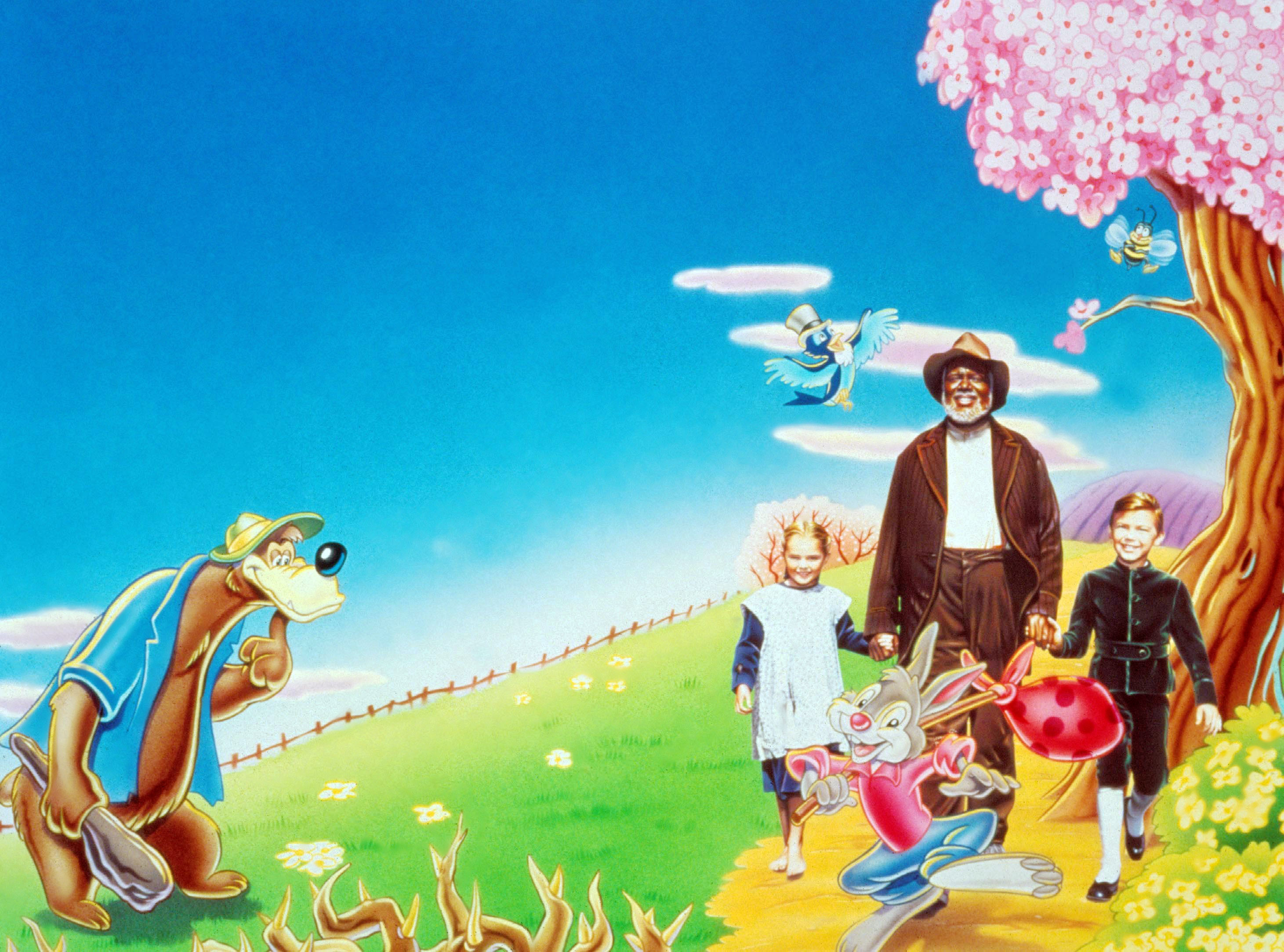 Vintage poster for the movie Song of the South
Vintage poster for the movie Song of the South
“Zip-a-Dee-Doo-Dah,” the Academy Award-winning song that originated in “Song of the South,” was once a staple at Disney Parks and parades. In line with efforts to distance itself from the film’s controversial aspects, Disney has removed the song from the daily Magic Happens parade at Disneyland in California. This followed its removal from the Festival of Fantasy parade at Magic Kingdom in Disney World the previous year.
The Magic Happens parade, which made its return on February 24, 2023, after a hiatus, now features music from 1953’s “Peter Pan” instead, further emphasizing the shift away from “Song of the South”.
4. Disney+ Excludes “Song of the South”: A Streaming Service Line Drawn
[Insert: Image related to Disney+ and “Song of the South” unavailability]
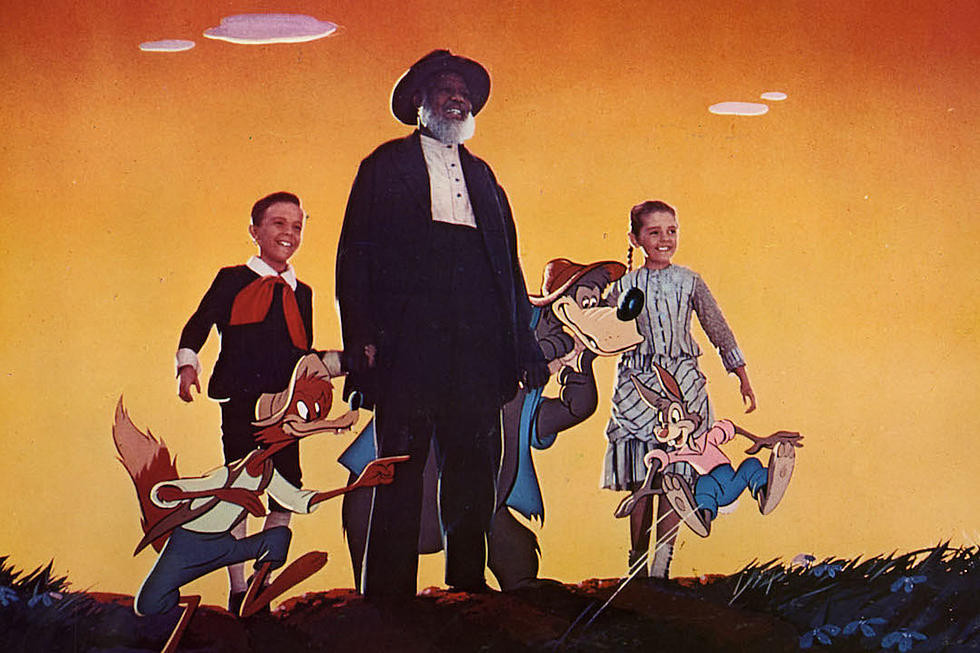
Unlike some Disney films that are available on Disney+ with content advisories regarding outdated cultural depictions, “Song of the South” is explicitly excluded and will not be offered even with such a disclaimer.
Disney CEO Bob Iger addressed this issue in 2020 as Disney+ began launching its library of classic titles.
During a Disney shareholder meeting, responding to a question about content availability on the streaming service, Iger stated that “Song of the South” is “not appropriate in today’s world” and confirmed its permanent unavailability for streaming release.
5. A Firm “No” to Disney+ Streaming: Disney’s Unwavering Stance
[Insert: Image representing unavailability on Disney+]
Image Credit: Moviestore/Shutterstock
Disney’s CEO Bob Iger has articulated that “Song of the South” “wouldn’t necessarily sit right or feel right to a number of people today,” solidifying the company’s position. Conversely, some voices have advocated for Disney+ to host the film, contextualized as a historical artifact.
The late Hollywood historian Cari Beauchamp argued to The Guardian, “To not include it is to pretend it doesn’t exist. They do exist and they need to be put in context: when was it made? What world was it reflecting? Disney loves being praised for having princesses that are from diverse backgrounds, but you have to look at the whole history.” This perspective suggests that understanding historical context is crucial, even when confronting uncomfortable content.
6. James Baskett’s Oscar: Recognition Amidst Controversy
[Insert: Image of James Baskett receiving an honorary Oscar]
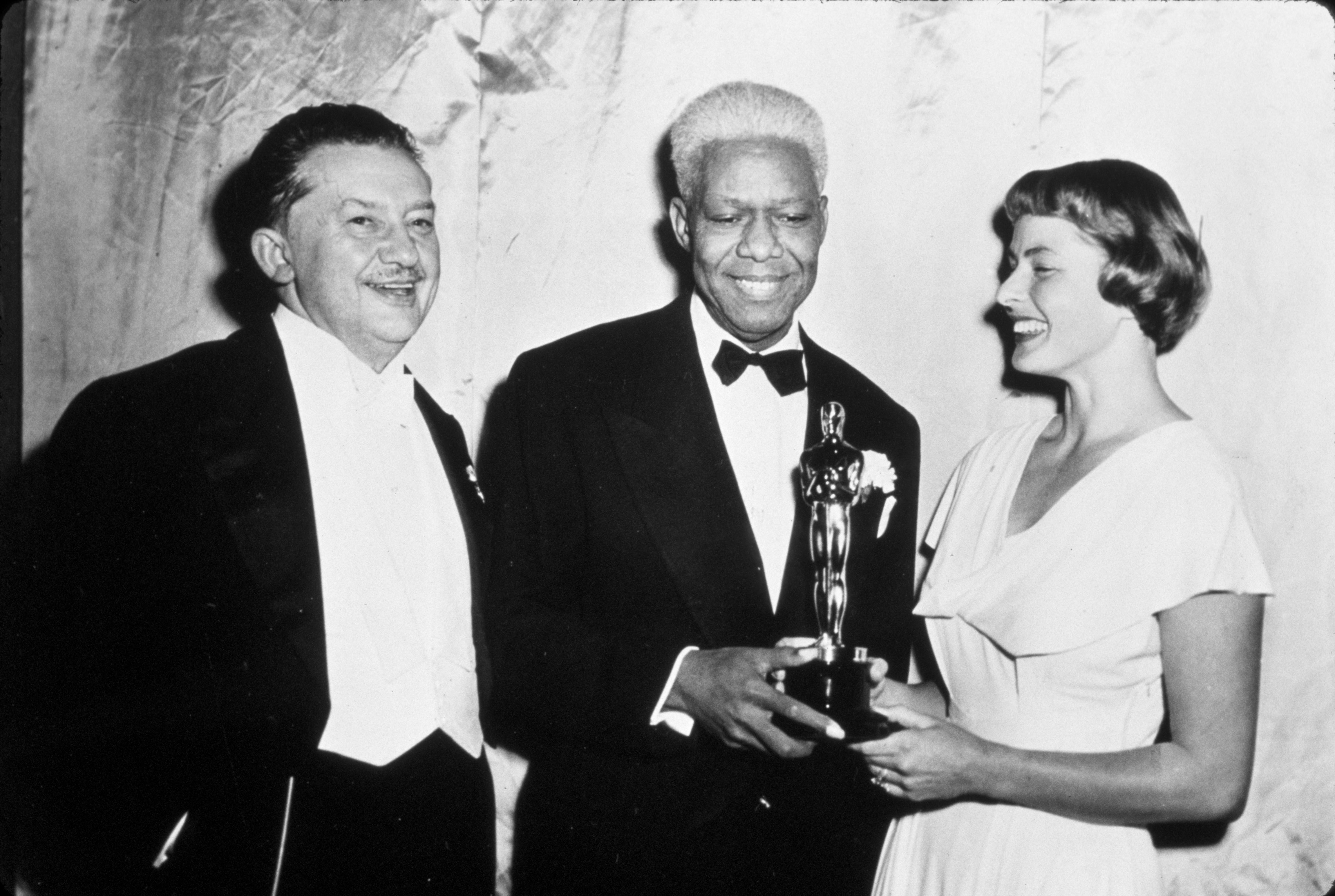 James Baskett holding his Honorary Academy Award for Song of the South
James Baskett holding his Honorary Academy Award for Song of the South
James Baskett’s portrayal of Uncle Remus earned him an Honorary Academy Award, recognizing his performance as the storyteller who imparts life lessons to Bobby Driscoll’s character, Johnny, a boy who moves from Atlanta to his grandmother’s plantation. The character of Uncle Remus, originating from Joel Chandler Harris’s collections, is often cited as an early example of the “Magical Negro” trope prevalent in Hollywood. Baskett received his Oscar in March 1948, but tragically passed away later that year due to complications from diabetes, highlighting the personal toll associated with the film even amidst accolades.
7. Origin of “Zip-A-Dee-Doo-Dah”: An Enduringly Popular, Yet Problematic Song
[Insert: Image of Uncle Remus looking at the sun]
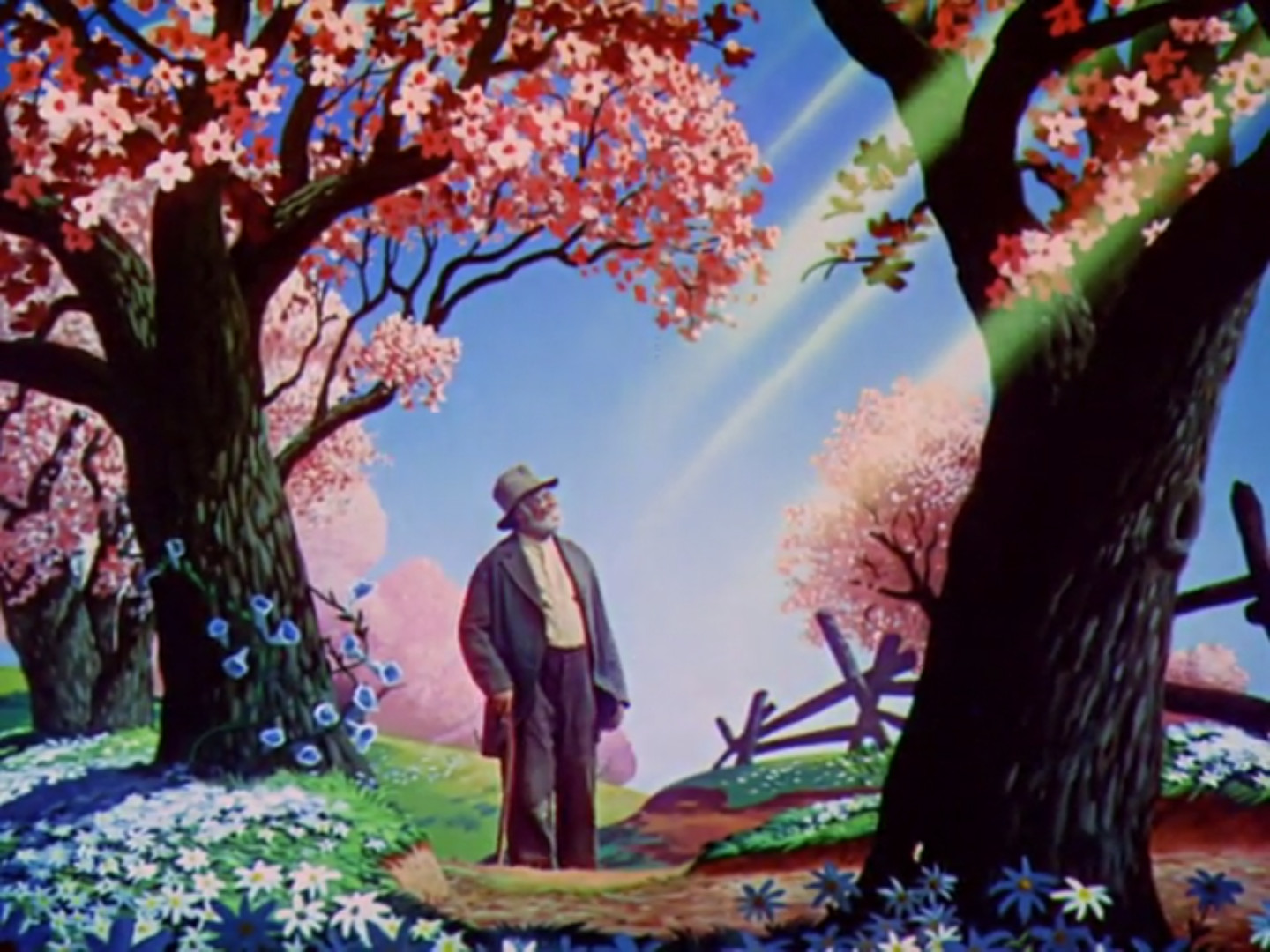
The undeniably catchy “Zip-a-Dee-Doo-Dah,” with music by Allie Wrubel and lyrics by Ray Gilbert, not only won the Academy Award for Best Original Song but has also become an enduring Disney favorite, widely recognized and used across various Disney platforms. Despite its cheerful melody and optimistic lyrics, the song’s deep roots in the controversial “Song of the South” inextricably link it to the film’s problematic legacy.
8. NAACP’s Criticism: Early Opposition to Glorified Slavery Depictions
[Insert: Image depicting scenes criticized by NAACP]
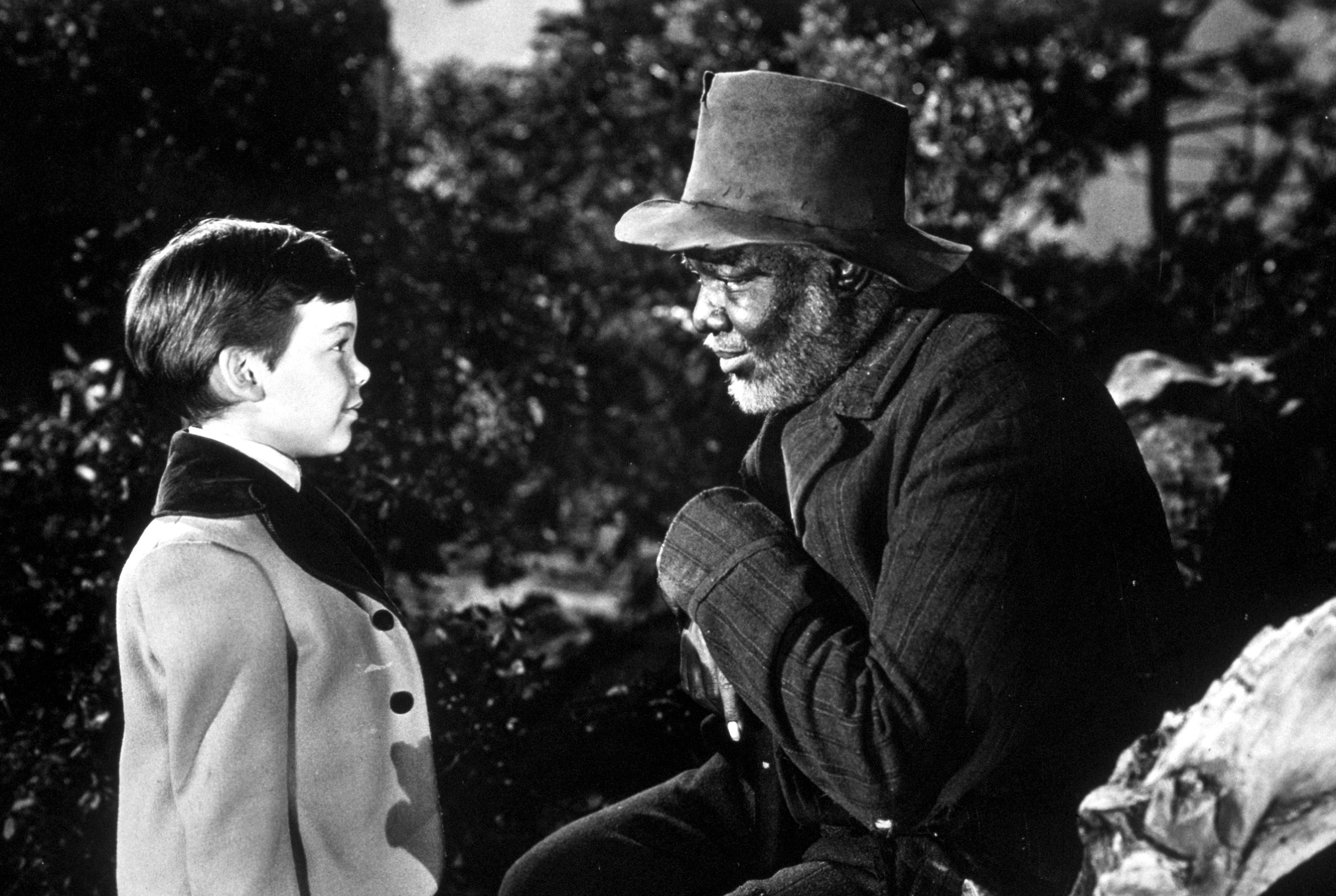 Stills from Song of the South depicting scenes of plantation life
Stills from Song of the South depicting scenes of plantation life
Even at the time of its release, the NAACP voiced strong criticism of “Song of the South.” While acknowledging the film’s innovative technical achievements in blending animation and live-action, the organization stated their deep reservations. The NAACP expressed “regrets…that in an effort neither to offend audiences in the North or South, the production helps to perpetuate a dangerously glorified picture of slavery … [the film] unfortunately gives the impression of an idyllic master-slave relationship, which is a distortion of the facts.” This early critique underscores the long-standing concerns about the film’s portrayal of race relations.
9. Splash Mountain’s Origins: Born from Controversy in the 1990s
[Insert: Image of Briar Patch gift shop entrance with Br’er Rabbit]
 Br'er Rabbit figure at the entrance to the Briar Patch gift shop near Splash Mountain
Br'er Rabbit figure at the entrance to the Briar Patch gift shop near Splash Mountain
The characters, songs, and settings of “Song of the South” directly inspired the creation of Splash Mountain, a log flume ride that became a beloved attraction at both Disneyland and Disney World. Opened initially in 1989, the ride draws heavily from the film’s animated segments, featuring Br’er Rabbit as the central character, alongside Br’er Fox and Br’er Bear as antagonists. This enduring theme park presence, derived from such a contested film, adds another layer to the complex legacy of “Song of the South”.
10. No US Home Video Release: A Deliberate Absence from DVD and Blu-ray
[Insert: Image symbolizing no DVD release]
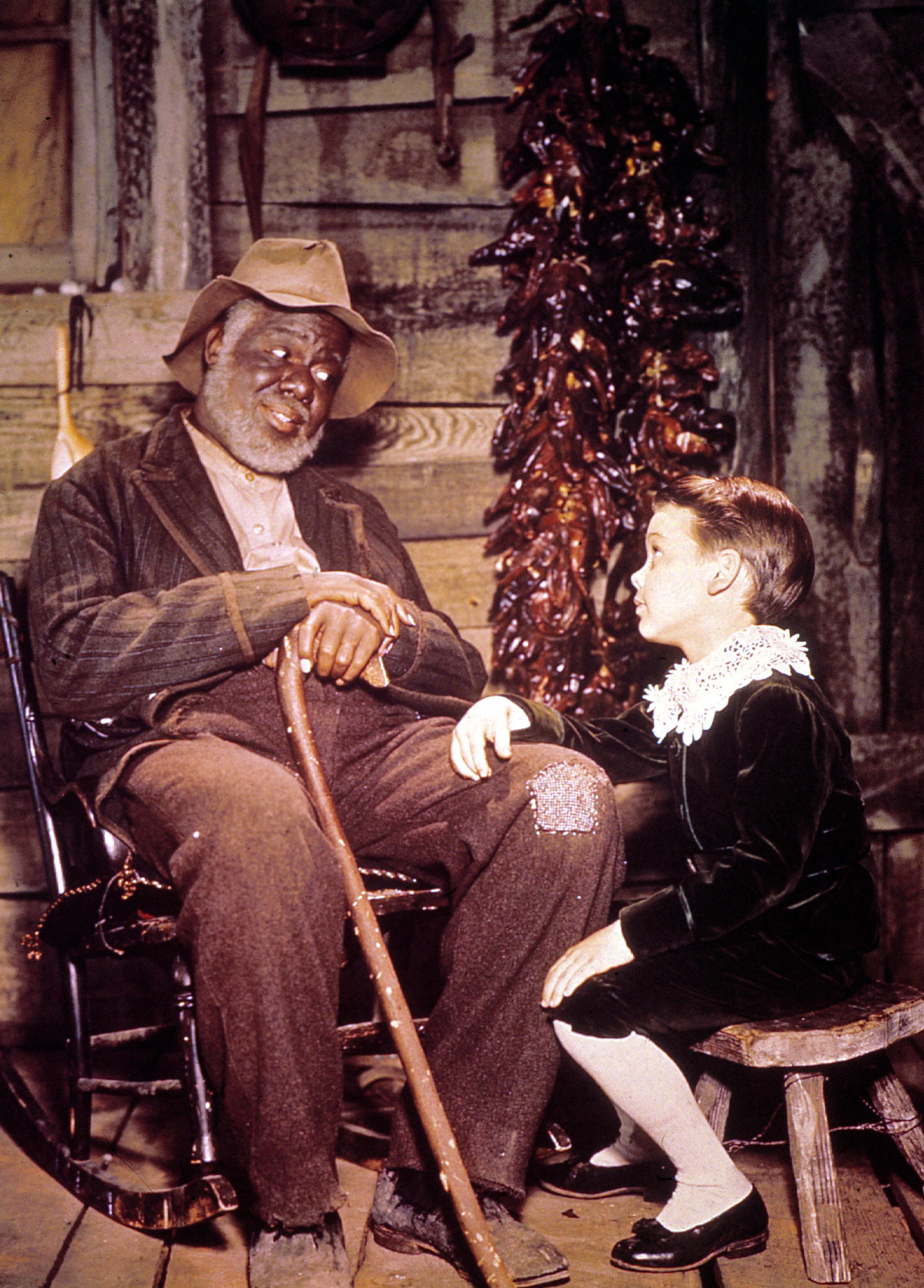 James Baskett and Bobby Driscoll in a scene from Song of the South
James Baskett and Bobby Driscoll in a scene from Song of the South
“Song of the South” has never been officially released on home video formats in the United States, including DVD and Blu-ray. In 2019, Disney CEO Bob Iger explained that “it wouldn’t be in the best interest of our shareholders to bring it back, even though there would be some financial gain,” emphasizing the company’s decision to prioritize ethical considerations over potential profits. Interestingly, VHS and LaserDisc versions of the film were released internationally, highlighting a geographical difference in distribution strategy.
11. Divergent Black Press Opinions: Not All Voices Condemned the Film
[Insert: Image related to diverse opinions on “Song of the South”]
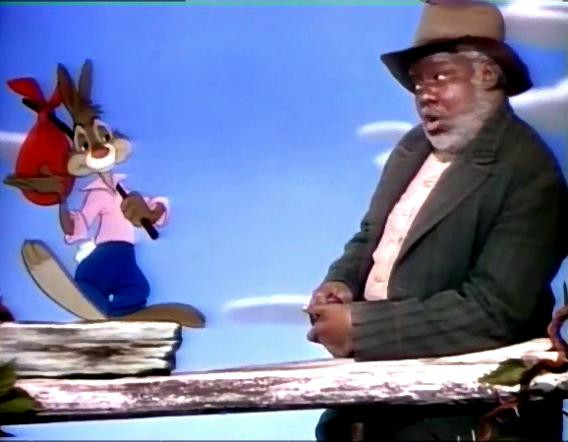 Animated Br'er Rabbit from Song of the South
Animated Br'er Rabbit from Song of the South
While Richard Dier of The Afro-American sharply criticized the film as “as vicious a piece of propaganda for white supremacy as Hollywood ever produced,” not all voices within the Black press shared this view. Herman Hill, a former USC basketball player, civil rights activist, and journalist, writing for The Pittsburgh Courier, offered a contrasting perspective. Hill suggested the film could “prove of inestimable goodwill in the furthering of interracial relations” and dismissed criticisms as “unadulterated hogwash symptomatic of the unfortunate racial neurosis that seems to be gripping so many of our humorless brethren these days.” This division in opinion illustrates the nuanced and complex reception of the film within the Black community itself.
12. Disney’s Early Unease: Awareness of the Film’s Sensitive Nature During Production
[Insert: Image representing Disney’s awareness of controversy]
Image Credit: Disney
Even during the production of “Song of the South,” Disney was acutely aware of the potential for controversy. Studio publicist Vern Caldwell communicated these concerns to producer Perce Pearce. Caldwell warned that “the negro situation is a dangerous one. Between the negro haters and the negro lovers there are many chances to run afoul of situations that could run the gamut all the way from the nasty to the controversial.” This internal communication reveals that Disney was not oblivious to the sensitive racial themes within the film and anticipated potential backlash.
13. Cast Defended “Song of the South”: Support from Within
[Insert: Image of Hattie McDaniel]
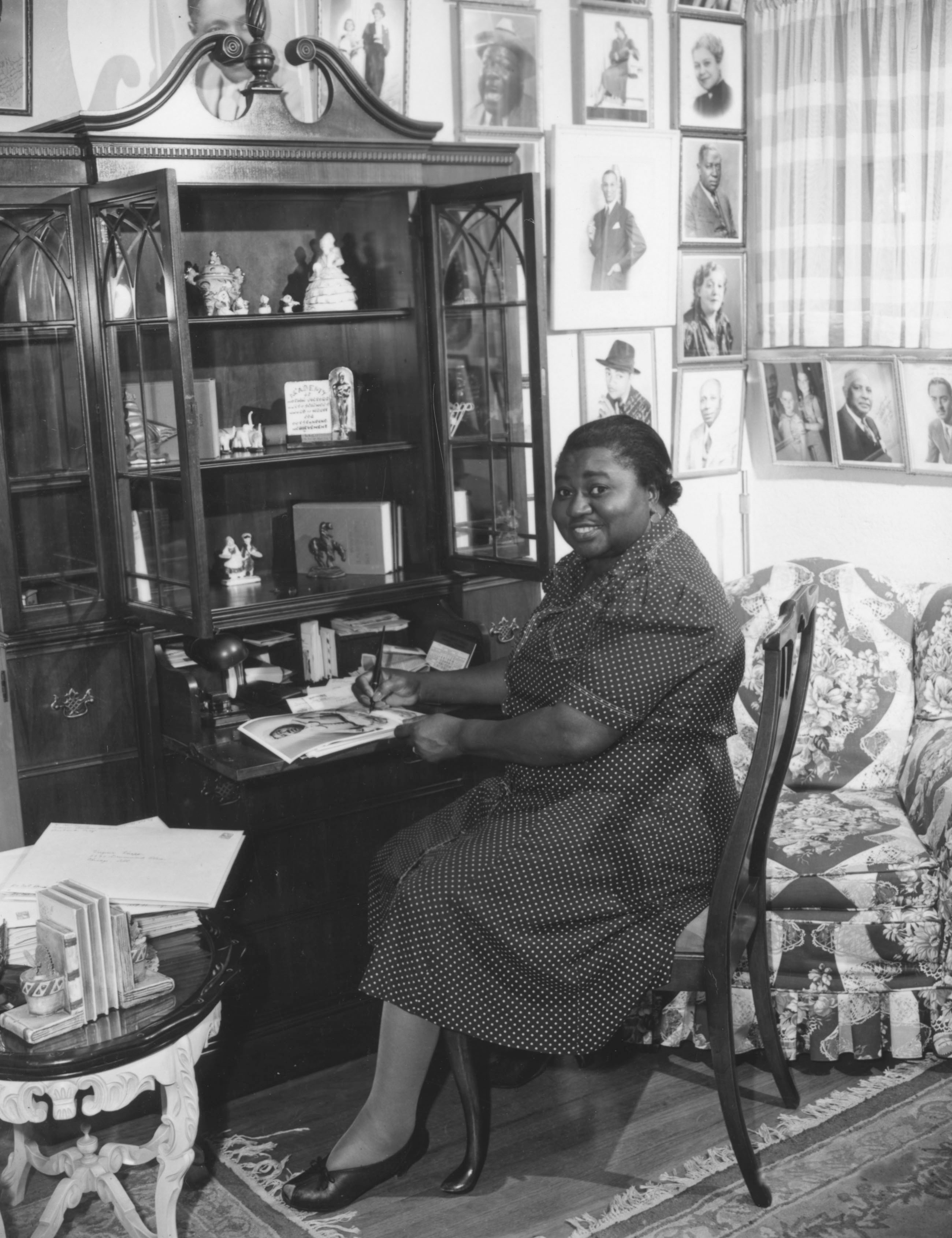 Hattie McDaniel, actress in Song of the South
Hattie McDaniel, actress in Song of the South
The cast of “Song of the South” included prominent Black actors like Hattie McDaniel, known for her Oscar-winning role in “Gone With the Wind,” who publicly defended the film. In a 1947 interview with The Criterion, McDaniel stated, “If I had for one moment considered any part of the picture degrading or harmful to my people, I would not have appeared therein.” James Baskett, her co-star, echoed this sentiment, asserting, “I believe that certain groups are doing my race more harm in seeking to create dissension than can ever possibly come out of the ‘Song of the South.’” These statements from within the film’s own cast provide a contrasting viewpoint to the widespread criticism, highlighting the complexities of opinions surrounding the movie.
14. Box Office Success Decades Later: Nostalgia and Continued Appeal
[Insert: Image of Luana Patten in “Song of the South”]
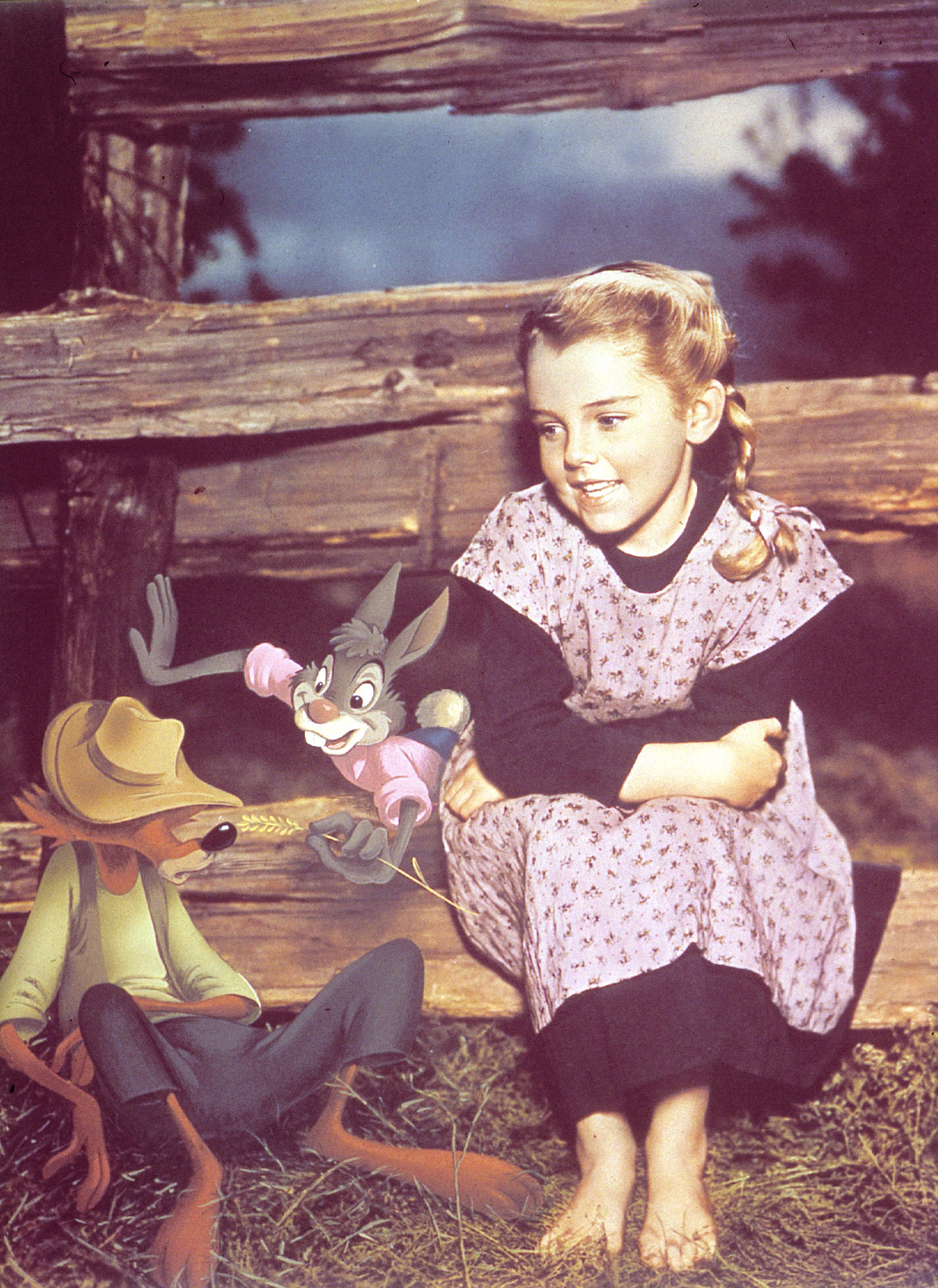 Luana Patten, child actress in Song of the South
Luana Patten, child actress in Song of the South
When Disney began re-releasing its classic animated films in theaters in the 1980s, capitalizing on growing nostalgia, “Song of the South” was among them. Despite the ongoing negative perceptions of the film dating back to its 1946 release, it still resonated with audiences forty years later. In its 1986 theatrical re-release, “Song of the South” earned over $17 million, demonstrating its surprising box office draw even amidst its controversial legacy and decades after its initial debut.

